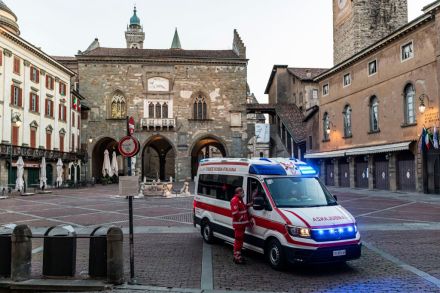Portrait of the week: Schools stay shut, Colston tumbles and bell tolls for Japan’s bike bells
Home The government lurched uncertainly in dealing with coronavirus. Not all years in primary schools would after all return before September, and secondary schools perhaps not even then. A 14-day quarantine was imposed on people entering the country. Churches could open for individual prayer from 15 June, as could shops of all kinds. Pubs, restaurants and hairdressers would have to wait until 4 July at the earliest. Face coverings were made obligatory on public transport from 15 June. The number of workers furloughed reached 8.9 million, and 2.6 million more had made claims under the Self-Employment Income Support Scheme. The drug company AstraZeneca began to make a planned two billion




















